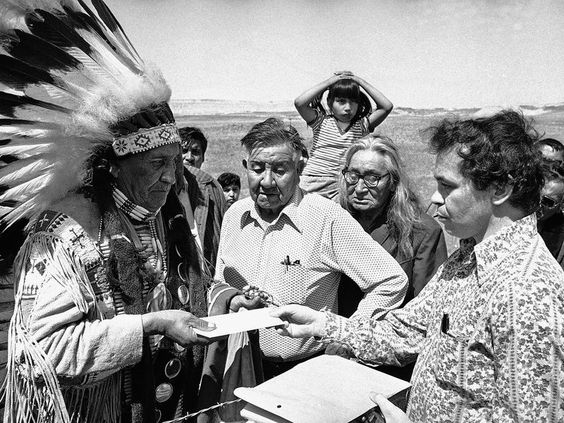The story of Hank Adams is one of resilience, courage, and relentless advocacy. Often overshadowed by more widely recognized figures, Adams played a crucial role in the fight for Native American rights, dedicating his life to the pursuit of justice for Indigenous peoples.

Early Life and Influences
Born on May 16, 1943, in Wolf Point, Montana, Hank Adams was a member of the Assiniboine-Sioux tribe. Growing up on the Fort Peck Indian Reservation, he witnessed firsthand the challenges faced by Native communities, including poverty, discrimination, and loss of cultural identity. These experiences instilled in him a deep sense of duty to his people.
Adams was an exceptional student, and his academic prowess eventually led him to the University of Washington. Here, he became deeply involved in the civil rights movement, which broadened his perspective on activism and justice.
The Fish Wars and Legal Battles
Hank Adams is perhaps best known for his involvement in the “Fish Wars” of the 1960s and 1970s. These were a series of protests and legal battles aimed at securing fishing rights for Native Americans in Washington State. The conflict arose from treaties signed in the mid-19th century, which guaranteed fishing rights to Native tribes. However, these rights were frequently violated by state authorities, leading to numerous arrests and violent confrontations.
Adams played a pivotal role in organizing protests, providing legal defense for arrested fishermen, and bringing national attention to the cause. His efforts culminated in the landmark 1974 Boldt Decision (U.S. v. Washington), which reaffirmed Native American fishing rights and allocated 50% of the annual catch to treaty tribes. This victory was a monumental achievement for Native sovereignty and set a precedent for future legal battles.
Advocacy Beyond Fishing Rights
While the Fish Wars were a significant part of Adams’ legacy, his activism extended far beyond this single issue. He was instrumental in advocating for Native American rights on multiple fronts, including land rights, education, and healthcare. Adams was a key figure in the American Indian Movement (AIM) and worked alongside other prominent activists to address systemic injustices faced by Indigenous communities.
One of his notable contributions was his involvement in the Wounded Knee Occupation of 1973, where AIM members and their supporters occupied the town of Wounded Knee, South Dakota, to protest the U.S. government’s failure to honor treaties with Native American tribes. Adams served as a mediator during the standoff, highlighting his commitment to peaceful resolution and justice.
A Legacy of Resilience and Advocacy
Hank Adams’ legacy is one of unwavering dedication to his people. Despite facing numerous personal and professional challenges, he remained steadfast in his mission to advocate for Native American rights. His work has had a lasting impact, not only in securing legal victories but also in inspiring future generations of Indigenous activists.
Adams received numerous accolades for his contributions, including the 2006 American Indian Distinguished Service Award and recognition from various Native American organizations. Yet, his story remains relatively unknown outside of activist circles, a testament to his humility and focus on the cause rather than personal glory.
Hank Adams’ life is a powerful reminder of the importance of advocacy and the impact one individual can have on the fight for justice. His tireless work has left an indelible mark on the Native American rights movement, and his legacy continues to inspire those who strive for equality and fairness. As we reflect on his contributions, let us honor Hank Adams not only as an activist but as a true hero whose efforts have brought about significant change for Native American communities.
